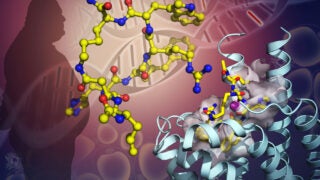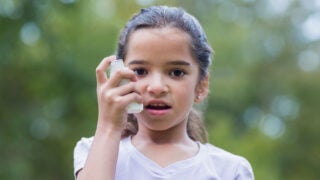A USC study identifies the strongest environmental predictor of childhood and adolescent obesity.
Obesity
News Listing
The risk of liver damage is highest for people who are obese or have diabetes, a Keck School of Medicine of USC study found.
The Southern California Center for Chronic Health Disparities in Latino Families and Children will focus on reversing obesity and obesity-related chronic diseases in Latinos with culturally sensitive solutions.
Thanks in part to guidance from USC’s Bridges to Business Success Program, Javonne Sanders believes her company, Toss It Up Salad, is primed to provide the community with much-needed healthy options.
Treating mice on high-fat diets with the peptide MOTS-c helped halt obesity-associated muscle atrophy, which USC scientists say could translate to muscle-wasting conditions in humans.
A first-of-its-kind USC study found that factors like secondhand smoke and a lack of exercise were associated with a higher BMI during childhood.
An international team of scientists, led by Raymond Stevens of USC’s Bridge Institute, is investigating a protein in the brain that will likely be the target of improved obesity therapies.
Boosting the cost of sodas and sugary drinks might not necessarily add up to better health, say USC experts.
A USC health economist notes how smoking among U.S. adults plunged after policy changes led to tactics including education, cigarette taxes and smoke-free public spaces.
USC-led international study shows asthma can make young people more susceptible to other health problems later in life.







